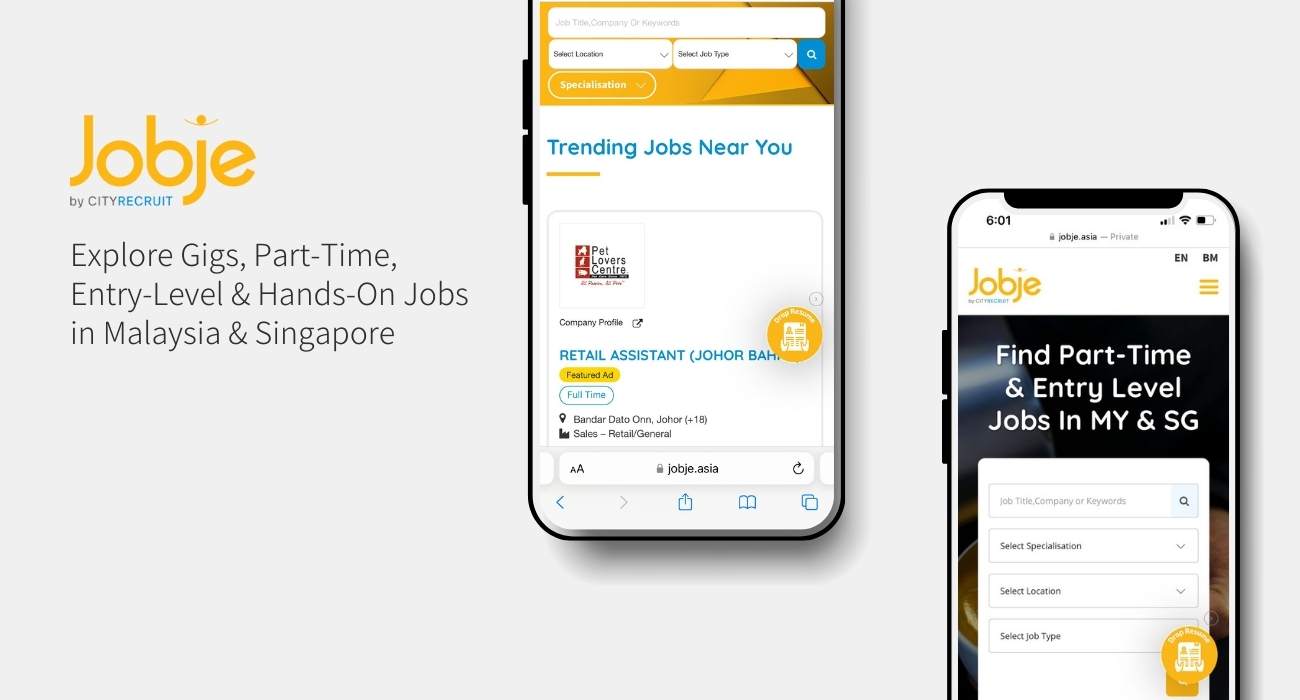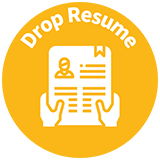Starting your first job is exciting gila, and one of the biggest questions fresh graduates always ask is: “Eh, how much is the starting pay ah?”
Don’t worry, you’re not alone. Many fresh graduates are pumped to kickstart their careers, but also a bit nervous about whether their first salary can match their lifestyle, cover makan-makan, and maybe even start that dream of financial independence.
In this article, we’ll dive into the latest salary insights for Malaysian fresh graduates in 2025. We’ll check out industry benchmarks, location as a factor, and the extra skills that can boost your value.
By the end, you’ll have a clearer idea of what to expect and how to stand out from the crowd.
Counting the Ringgit: Average Fresh Graduate Salary in Malaysia

Honestly, talking about salary can sometimes feel taboo. But come on lah, it’s not just about the numbers on the payslip. It’s about whether you can afford rent, kopi sessions, Netflix, and still save a bit for the future.
Based on data from job portals, recruiters, and surveys, here’s what fresh graduates can expect in 2025:
- Overall average: RM2,800 to RM3,500 per month.
- Higher-paying industries: RM3,800 to RM4,500 per month (STEM fields, IT, finance, and specialised roles).
- Lower-paying roles: RM2,200 to RM2,700 per month (arts, hospitality, and certain entry-level customer service positions).
These figures are averages, not a guarantee lah. Some fresh graduates start above the range because of in-demand skills, strong internships, or niche expertise, while others begin at the lower end and build up over time.
The key is to treat your first salary as a starting point, not the ceiling of your career.
Note: A write-up on fresh graduate salary from Social Security Organisation (Perkeso), published with New Straits Times on Rethinking Graduate Wages.
5 Key Factors That Shape Your First Paycheque
When it comes to fresh graduate salaries, there’s no one-size-fits-all answer. The truth is, two people in the same company can start at different levels because of factors like your degree, experience, skills, and even how you approach your first offer.
1. Field of Study
If you’re from a STEM background (Science, Tech, Engineering, Mathematics) or hold a professional degree like law, accounting, or medicine, chances are your starting pay will be on the higher side.
This is because these fields are in strong demand and require specialised knowledge. Employers are usually willing to invest more in fresh graduates who have technical expertise that’s easily replaceable.
2. Internship & Experience
Your degree is important, but employers often want proof that you can actually perform in a real work setting. Graduates who completed multiple internships or took on part-time roles related to their field often stand out.
It shows initiative and adaptability, and in some cases, companies even offer permanent roles to their best interns with above-average starting salaries.
3. Skills
We’re living in a digital-first world, and having in-demand skills can really bump up your starting pay. Knowing how to code, analyse data, run digital marketing campaigns, or even communicate effectively across teams makes you far more valuable.
Employers see these as “bonus assets” and are often willing to pay more for graduates who can hit the ground running without extensive training.
4. Company Size
Larger companies, especially Multinational Corporations (MNCs), tend to offer higher starting salaries because they have bigger budgets and structured pay scales.
That said, Small and Medium Enterprises (SME) can give you a faster learning curve, more responsibilities, and hands-on experience that MNC graduates may not get.
It’s a trade-off: higher pay upfront versus quicker career growth and exposure.
5. Negotiation
Many fresh graduates don’t realise this, but your first offer isn’t always set in stone. If you’ve done your homework on industry salary benchmarks and can show the value you bring, you can sometimes negotiate a better deal.
Of course, the key is to do it respectfully. Show that you know your worth without coming off as demanding.
JobJe Key Takeaway: Focus on building the right foundation, and the money will naturally follow as you grow in your career.
If you’re a first-time job seeker, check out A Complete Guide for First-Time Job Seekers (What You Should Know) to explore the resources available.
Salary by Industry: Who’s Paying What?

Not all degrees (or jobs) are created equal when it comes to starting salary.
Some industries naturally offer higher pay because of demand and skill shortages, while others may start lower but provide strong growth or meaningful career paths.
| Industry / Sector | Salary Range (RM) | Insights |
| Engineering (Civil, Mechanical, or Electrical) | 3,200 – 3,800 | Strong demand in infrastructure, energy & manufacturing. |
| IT & Tech (Software, Data, or Cybersecurity) | 3,500 – 4,200 | High demand; data & cybersecurity pay even better. |
| Finance & Accounting | 3,000 – 3,800 | Higher entry for graduates with professional qualifications (Association of Chartered Certified Accountants (ACCA), Certified Public Accountant (CPA) and other professional bodies). |
| Business & Marketing | 2,800 – 3,300 | Lower starting pay, but digital skills = fast growth. |
| Sciences (Biotech, Chemistry, or Lab Work) | 2,800 – 3,400 | Depends on respective private labs, pharmaceutical companies, or research centres. |
| Hospitality & Tourism | 2,200 – 2,800 | Still recovering post-pandemic, but demand is rising . |
| Creative Arts & Media | 2,300 – 2,900 | Modest pay at first, may vary according to portfolios & freelance work. |
| Education (Private Tuition or Entry Teaching) | 2,500 – 3,200 | Higher potential in international schools & niche subjects. |
MNC vs Local Company: What’s the Real Package?
A lot of fresh graduates think, “MNC must be better lah, higher pay and bigger brand name.”
True, MNCs often offer higher starting salaries compared to local SMEs. They also tend to come with structured training, clear promotion paths, and global exposure.
But don’t be quick to dismiss local companies. Many local firms offer faster career progression, more hands-on experience, and opportunities to take on responsibility earlier.
Another factor is the total package. An MNC might give you an RM3,800 starting salary but require long hours, high pressure, and strict systems.
A local company might start you at RM3,200 but provide more mentorship, flexibility, and the chance to wear multiple hats, which would build your skill set faster.
Location Matters: Salaries Across Malaysia
Apart from industry, where you work also makes a big difference. A job in KL might pay more on paper, but if your rent, Grab rides, and café bills eat up half your paycheck, you might end up saving less than someone earning a bit less in Penang or Kuching.
Here are some insights into the salary range in different states and the factors that might contribute to the differences.
Kuala Lumpur and Selangor
The money hub. Fresh graduates here usually enjoy the highest salary ranges because of the concentration of multinational corporations (MNCs), regional HQs, financial services, and tech hubs. But there’s a catch: the cost of living is no joke.
Rent in hot areas like Bangsar, Mont Kiara, or Petaling Jaya (PJ) can easily take up roughly 30% of your income. Daily expenses like transportation (Grab/toll/parking) and food are also pricier. Basically, higher pay ≠ higher savings unless you budget smart.
Related: KL still nation’s priciest rental market
Penang
Silicon Island vibes. Penang offers strong salaries, especially in electronics, semiconductors, and tech manufacturing. Big names like Intel, Dell, and HP frequently recruit fresh graduates.
The cost of living in Penang is slightly lower compared to KL. Rent is more affordable, local food is both cheap and legendary, and there is less traffic stress. Many graduates find that even with slightly lower salaries, they are able to save more here.
Johor Bahru (JB)
Industry + Singapore advantage. JB is strong in manufacturing, logistics, and services, offering competitive salaries.
The proximity to Singapore is a game-changer too, with some fresh graduates exploring cross-border opportunities, freelance gigs, or even future career shifts into the Singapore market, which can boost earning potential in the long run.
Other States (Sabah, Sarawak, East Coast)
Lower pay + lower costs = higher balance. Salaries here tend to be 10 to 20% lower than KL, but living costs are much more manageable. Rent is cheaper, traffic is lighter, and the overall lifestyle can be more balanced. For some, this actually means better savings potential compared to the “earn more, spend more” cycle in KL. Plus, industries like oil & gas (in Sarawak) or tourism (in Sabah) can still offer solid opportunities.
JobJe Key Takeaway: Don’t just chase the highest salary. Look at the full picture: rent, transport, makan, lifestyle. Sometimes a smaller salary in Penang or JB stretches further than a bigger salary in KL.
For more tips on how to apply for jobs – especially if you are a fresh graduate, check out How to Apply for Jobs: A Beginner’s Guide to Landing Your First Role
What Skills Can Boost Your Pay?

We all want to aim high lah. But to deserve the salary you’re asking for, you need to show employers you’ve got the goods. Skills are your biggest power-up.
So what are the skills that can give you the additional oomph factor?
Digital & Tech Skills
Knowing how to code (using languages like Python and Java), handling data analysis, or diving into machine learning and cybersecurity instantly makes you more valuable. These skills are in demand across almost every industry.
Languages
If you can speak Mandarin, Japanese, or Korean, you’ve got a leg up with multinational companies and regional HQs. Language skills = more opportunities.
Professional Certifications
Finance graduates with ACCA, CFA, or CPA start stronger. In IT, certifications like AWS or Google Cloud stand out. Even in marketing, HubSpot or Google Analytics certs show you mean business.
Soft Skills
Don’t underestimate this one. Clear communication, teamwork, adaptability, and problem-solving are often factors that decide who gets promoted faster.
JobJe Key Takeaway: Pick one or two specialised skills early on. Even if your base salary starts at an average level, your skills will catapult you above your peers later.
Career Growth Snapshot
Now that you know which skills can boost your pay, here’s a real-life example of how one young Malaysian put them into action:
An engineering graduate (Aida, 25) was profiled after joining a GLC contractor in Johor.
- 2019: Graduate Trainee, RM2,500/month
- 2021: Assistant Engineer, RM3,200/month
- 2022: Project Engineer, RM4,500/month
Growth: +80% in 3 years
Key driver: Consistent upskilling (AutoCAD & safety certification) and project exposure.
As Aida puts it:
“Once I got certified, my value went up fast. Companies are willing to pay more when you can handle site work confidently.”
Beyond Salary: What Else to Look At?
Your payslip isn’t the whole story. Fresh graduates should also think about the benefits and career progression. Here’s what else you should check before saying yes to an offer:
EPF & SOCSO Contributions
This is basically your forced savings plan, but in a good way. The higher the employer’s contribution rate, the more “future you” will thank “current you.” Some companies even give extra EPF above the legal minimum, that’s extra retirement money you don’t want to miss.
Medical Coverage & Insurance
Don’t underestimate this one. A solid medical plan means you won’t have to burn your own pocket for hospital bills. Some companies even cover dental, optical, or family dependents, which is a huge plus if you’re thinking long-term.
Allowances
Transport, meal, phone, or even internet allowances might sound small, but they add up nicely. A RM200 transport allowance basically saves you RM2,400 a year. That’s almost like a bonus.
Salary Growth
Don’t just look at today’s salary. Ask yourself: Will this role challenge me, help me learn, and potentially lead to a faster promotion? A job that pays RM2,800 but leads to RM5,000 in 2 years can be smarter than a comfy RM3,500 role with no progression.
Work-life Balance
Lastly, your mental health is priceless. If a job gives you reasonable hours, a healthy culture, and space to breathe, it’s worth a lot. Because let’s be real, what’s the point of higher pay if you’re too stressed to enjoy it?
Career Progression
Where will you be in 3 years? Will you grow into an independent professional with solid expertise, or still be stuck in the same entry-level role? Career growth is something you should factor in from the start.
A job that invests in your learning, provides mentorship, and opens doors for advancement will build you up over time, even if the starting pay isn’t the highest.
Career Advice for Fresh Graduates

Your first job may not pay as much as you hoped, but it’s the beginning of your career journey. Some advice:
Think long-term
Focus on growth potential, not just starting pay. A job that pays slightly lower today but offers skill development may lead to faster promotions.
Keep learning
Continue building skills after graduation. Online courses, certifications, and workshops make a big difference.
Be flexible
Consider opportunities in smaller cities or different industries to gain experience.
Network actively
Career progression often depends on who you know, not just what you know. Attend career fairs, join professional groups, and connect with mentors.
Stay positive
Many graduates start with modest salaries but progress quickly within 2 to 3 years.
If you are a fresh graduate looking for a comprehensive step-by-step guide on how to write a resume that stands out, check out How to Write a Resume That Gets Hired: Malaysia Fresh Grad Guide
Beyond the Ringgit: Building Your Career Journey

At the end of the day, your first salary is not the final chapter of your career; it’s just the opening line. Whether you start at RM2,500 or RM4,000, what matters most is how you grow, the skills you stack, and the network you build along the way.
Don’t stress if your payslip feels “meh” at first. Focus on gaining experience, sharpening your skills, and proving your value. Within a couple of years, your numbers can jump faster than you expect.
Remember, the goal isn’t just to chase money, but to build a sustainable career that supports your goals, passions, and future dreams.
Take your next step with JobJe, a professional online recruitment and employment service that specialises in helping fresh graduates land their first job.
Reach out to us directly via WhatsApp or contact us through our official website.
Whether you are looking for gigs, part-time, or hands-on jobs – we’ve got you covered.
Frequently Asked Questions
1. Is it normal for fresh graduates to change jobs within the first 1 to 2 years?
Yes. Many graduates switch jobs early to gain exposure, better pay, or opportunities for career growth. Just make sure job-hopping doesn’t create a perception of instability on your CV.
2. Are contract roles or internships worth considering after graduation?
Yes. While they may pay less at the start, contract positions and extended internships often serve as stepping stones into permanent, better-paying roles once you prove your capabilities.
3. How will the economic outlook in 2025 affect graduate salaries?
Malaysia’s push in the digital economy, green tech, and regional trade is creating increased demand in STEM and IT roles, which could keep salaries competitive despite global uncertainties.
4. How often do fresh graduate salaries in Malaysia get reviewed or adjusted?
Most companies review salaries annually during performance appraisals. However, some industries (like tech or consulting) may offer increments or promotions more frequently, depending on performance.
5. How important is networking for fresh graduates?
Very important. Many job opportunities in Malaysia are filled through connections and referrals, not just job portals. Building a strong LinkedIn profile, attending career fairs, and joining industry events can open doors to better job opportunities.



